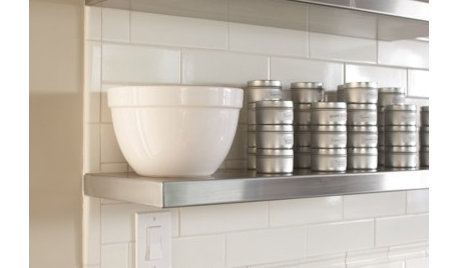How does one find small-contract growers?
soilent_green
13 years ago
Related Stories

INSIDE HOUZZHow Much Does a Remodel Cost, and How Long Does It Take?
The 2016 Houzz & Home survey asked 120,000 Houzzers about their renovation projects. Here’s what they said
Full Story
HOUSEPLANTSOutsmart Winter — Make Houseplants of Your Garden Growers
No need to watch Jack Frost play Wreck the Rosemary. Bring your garden inside for the winter, using containers and these guidelines
Full Story
STORAGEClosets Too Small? 10 Tips for Finding More Wardrobe Space
With a bit of planning, you can take that tiny closet from crammed to creatively efficient
Full Story
BUDGETING YOUR PROJECTConstruction Contracts: What to Know About Estimates vs. Bids
Understanding how contractors bill for services can help you keep costs down and your project on track
Full Story
CONTRACTOR TIPSWhat to Look for in a Contractor's Contract
10 basic ingredients for a contract will help pave the way to remodel happiness
Full Story
BUDGETING YOUR PROJECTConstruction Contracts: What Are General Conditions?
Here’s what you should know about these behind-the-scenes costs and why your contractor bills for them
Full Story
WORKING WITH PROSConstruction Contracts: How to Understand What You Are Buying
Learn how plans, scope of work and specifications define the work to be completed
Full Story
DESIGN PRACTICEContracting Practice: Marketing Your Business
To keep those projects rolling in, combine old-school techniques with the latest in high-tech networking
Full Story
REMODELING GUIDESBathroom Workbook: How Much Does a Bathroom Remodel Cost?
Learn what features to expect for $3,000 to $100,000-plus, to help you plan your bathroom remodel
Full Story
KITCHEN DESIGNHow Much Does a Kitchen Makeover Cost?
See what upgrades you can expect in 3 budget ranges, from basic swap-outs to full-on overhauls
Full StorySponsored






myfamilysfarm
cowpie51
Related Professionals
Chattanooga Landscape Architects & Landscape Designers · Clark Landscape Architects & Landscape Designers · Glen Ellyn Landscape Architects & Landscape Designers · Mountain Brook Landscape Architects & Landscape Designers · Norton Shores Landscape Architects & Landscape Designers · Tempe Landscape Contractors · Berkeley Heights Landscape Contractors · Gallatin Landscape Contractors · Northbridge Landscape Contractors · Old Saybrook Landscape Contractors · Thonotosassa Landscape Contractors · Twin Falls Landscape Contractors · University City Landscape Contractors · Half Moon Bay Solar Energy Systems · Saratoga Solar Energy Systemsmyfamilysfarm
soilent_greenOriginal Author
soilent_greenOriginal Author
boulderbelt
myfamilysfarm
ekgrows
ekgrows
soilent_greenOriginal Author
myfamilysfarm